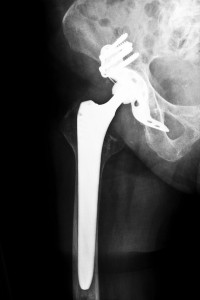Concerns with Metal-On-Metal Hip Replacements

For immediate or urgent assistance, call Tennessee Metal on Metal Hip Replacement Attorneys or fill out a form on our contact us page. In the past few years, out of an approximate 250,000 hip replacements that had been performed yearly in the U.S., almost one-third of those had been done with metal-on-metal implants. The ball and socket joints of these devices were made with metals such as chromium and cobalt with the idea that they would be more durable than other kinds of implants. However, due to concerns that these metal hip replacements are causing serious bone and tissue damage and the need for revision surgery sooner than expected, many orthopedic surgeons are no longer using these devices.
Recent studies indicate that metal-on-metal hip implants wear quickly with the friction from their metal components rubbing against each other and causing metal debris to shed, collect and seep into a patient’s bloodstream. The intention of an artificial hip is for it to last 15 plus years and reasons for early replacement are usually due to issues with dislocation rather than severe complications from metal poisoning. According to surgeons, when metal debris is involved in a revision surgery, the replacement procedure can be more complicated with the possibility of lasting complications for some patients.
Over the last year, Rush University Medical Center surgeons have performed approximately two dozen replacement surgeries due to metal debris, according to their head of orthopedic surgery department, Dr. Joshua J. Jacobs. Nearly the same amount of patients at Mayo Clinic have had metal hip devices removed, according to their head of orthopedic surgery, Dr. Daniel J. Berry, who also reported that Mayo Clinic surgeons have decreased their use of metal-on-metal hip implants by 80 percent. Instead, they are using implants made from materials other than metal-on-metal.
“What we see is soft-tissue destruction and destruction of bone,” stated orthopedic surgeon, Dr. Young-Min Kwon, at Massachusetts General Hospital. It is estimated that 1 to 3 percent of metal implant patients may be affected by these complications, which would mean thousands of recipients in the U.S. could suffer from these metal devices.
Complications of Metal-on-Metal Hip Implants
Metal hip devices are causing painful and often dangerous complications such as the following:
- Swelling and Inflammation at or around the site
- Severe pain with or without movement
- Dislocation of the implant
- Deterioration of bone
- Loosening of the implant
- Metal toxicity
- Additional corrective hip implant surgeries
When friction from metal parts rubbing against other metal parts sheds metal debris, a condition called metallosis, or metal toxicity can occur. Accumulation of these metal particles wears down the implant and can cause additional dangerous side effects:
- Confusion
- Gastrointestinal system complications
- Emotional issues
- Infections
- Dizziness and headaches
- Nervous system complications such as numbness, tingling, and burning in legs and arms
- Cobalt poisoning can cause hearing, cognition or sight complications, hypothyroidism, skin rashes, tremors, and cardiomyopathy
Metal-on-Metal Hip Implant Systems
Our experienced metal-on-metal hip replacement attorneys at Tennessee Attorney Group are working on cases against the following hip replacement systems:
- Tennessee Apex ARC Hip Replacement System Lawsuit
- Tennessee Biomet Hip Replacement Attorneys
- Tennessee DePuy ASR Hip Recall Attorneys
- Tennessee DePuy Pinnacle Recall Attorneys
- Tennessee Smith & Nephew R-3 Recall Attorneys
- Tennessee Stryker Hip Recall Attorney – Stryker Rejuvenate
- Tennessee Wright Conserve Hip Recall Attorneys
- Tennessee Zimmer Durom Cup Hip Recall Attorneys
- Tennessee Zimmer Kinectiv Lawsuit
- TN Stryker Hip Replacement Attorneys — ABG II
If you or a loved one have suffered from complications of a metal hip implant, contact our lawyers to see if you could receive compensation for your injuries.





